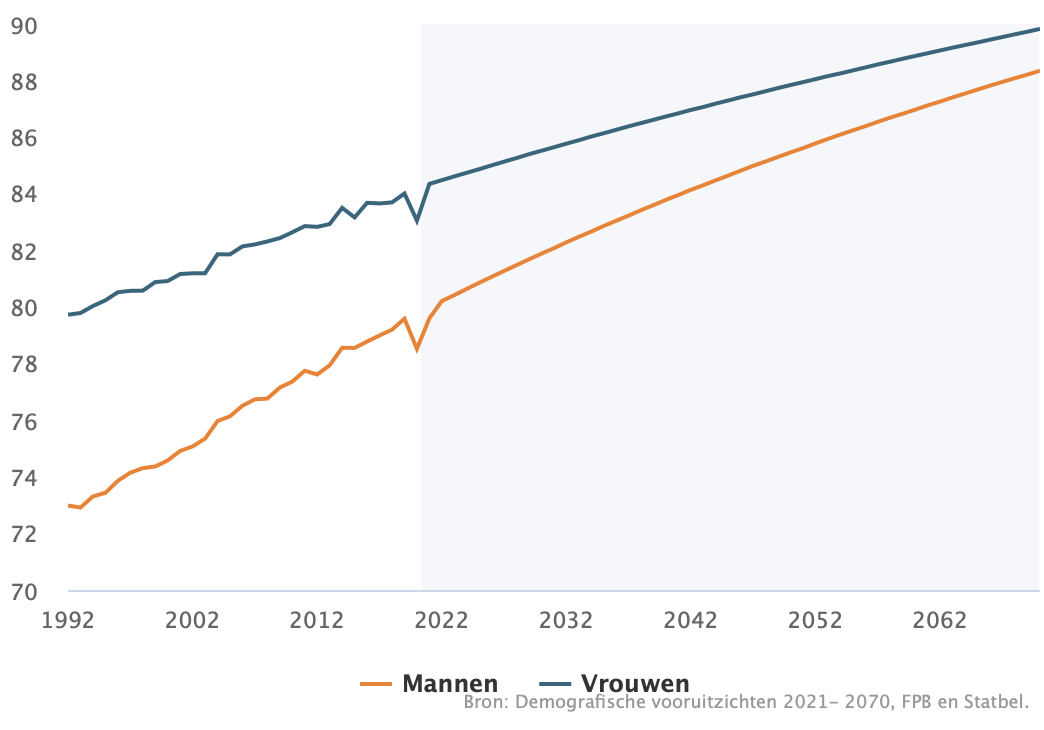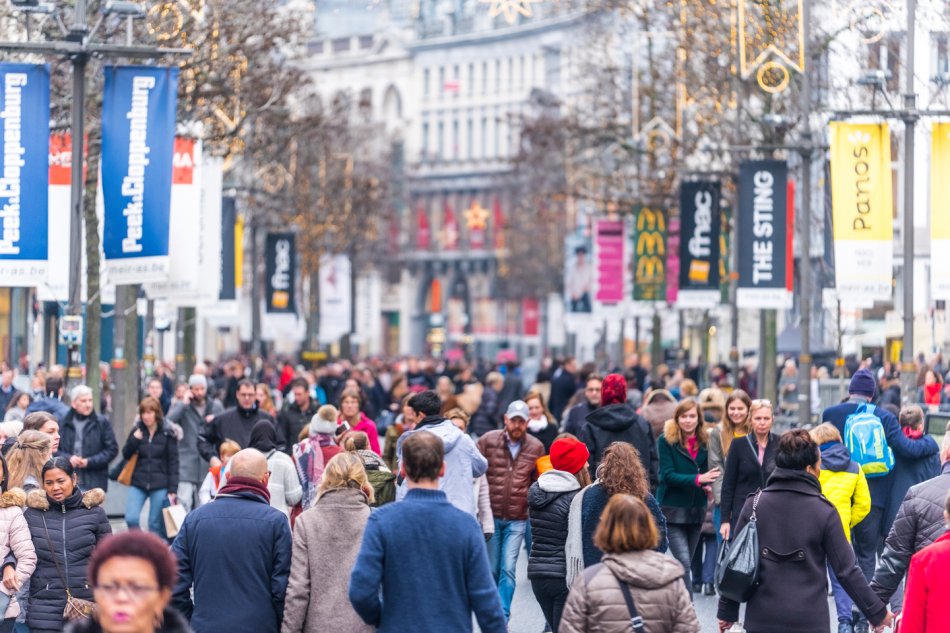Belgium's population is set to increase by 1.3 million to reach 12.9 million by 2070, but the average annual growth is slowing down in the country.
International migration will remain the main driver of population growth until 2070, according to the latest demographic projections published by the Federal Planning Bureau (FPB) on Tuesday.
"In the long term, migration flows remain at high levels but are not increasing. Indeed, flows from countries outside the European Union will increase but will be offset by a decrease in arrivals from the new EU Member States, in particular Romania, Poland and Bulgaria," Marie Vandresse, a demographic expert at the FPB said.
Related News
- Belgian researchers take part in international study on the impact of the pandemic on bereavement
- Coronavirus infections decreased by 40%, hospitalisations follow suit
Although restrictions on travel slightly affected international migration, the pandemic is no longer expected to have an impact on migration flows as restrictions are largely lifted.
The coronavirus crisis had an impact on Belgium's demographic growth in 2020 (about 14% excess mortality), but will not affect population growth in the long term, and it is not expected to influence people's fertility, according to the FPB.
Deaths overtaking births
Births will continue to exceed deaths until 2040, but from then onwards, the opposite will occur. While between 1992 and 2020, the average number of additional inhabitants rose by 52,000 inhabitants per year, this is expected to be reduced by half between 2021 and 2070 (an increase of 27,000 inhabitants).
This is mainly due to the fact that, in the next five years, it is forecast that a series of uncertainties, both health and economic, will continue to affect fertility. In 2021, the average number of children per woman was estimated at 1.59, or a slight increase compared to 2020 (1.54). However, in the long term, this could recover to 1.7 children.

The average number of children per woman in Belgium is set to return to 1.72 by 2070. Credit: FPB and Statbel
The population is expected to rise most in Flanders (an increase of 1 million people, or 15%, is predicted here), followed by Wallonia, where the population is set to increase by 6% or 200,000 people. An increase in the number of deaths, which is surpassing that of births, is the main driver in holding back population growth.
In the Brussels Region, which has experienced an average growth of 9,000 inhabitants per year since 1992, this increase dropped to 2,000 inhabitants per year from 2021, mainly due to people migrating to other regions in the country. The region is expected to have an additional 100,000 inhabitants by 2070.
Belgians set to live longer
The life expectancy of people living in Belgium will increase again from 2021 – the excess mortality in 2020 resulted in a drop in life expectancy – assuming the pandemic will have no long-term effect on mortality and is expected to reach 90 years for women and 88 years for men in 2070, compared to 84 and 80 years today.

Life expectancy in Belgium (blue line is women, the orange line represents men). Credit: FPB and Statbel
The ageing of the population is reflected in an increase in the average age of the population in Belgium. While it is currently 42 years old, it will rise to 44.8 years in 2050 and 45.5 years in 2070.
This increase in the life expectancy age will also result in a rising number of people living in collective households (such as residential care homes), particularly among those aged 80 and over. This age group is expected to double by 2070.

